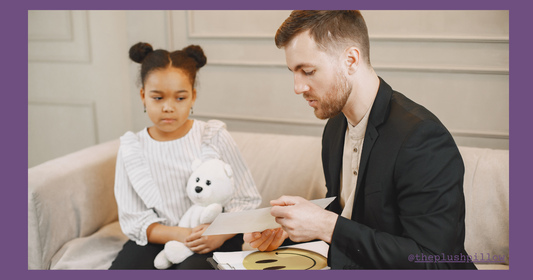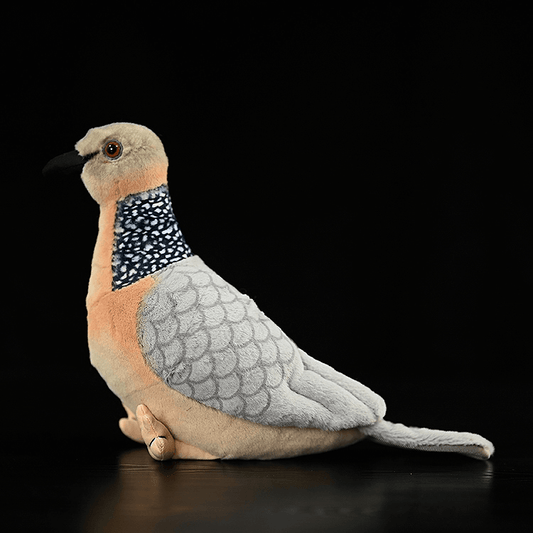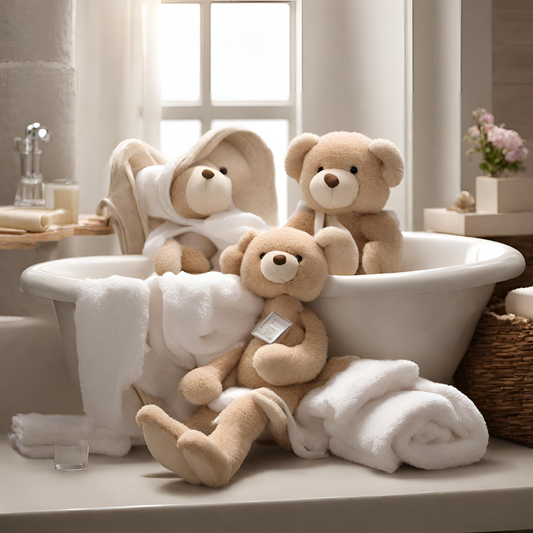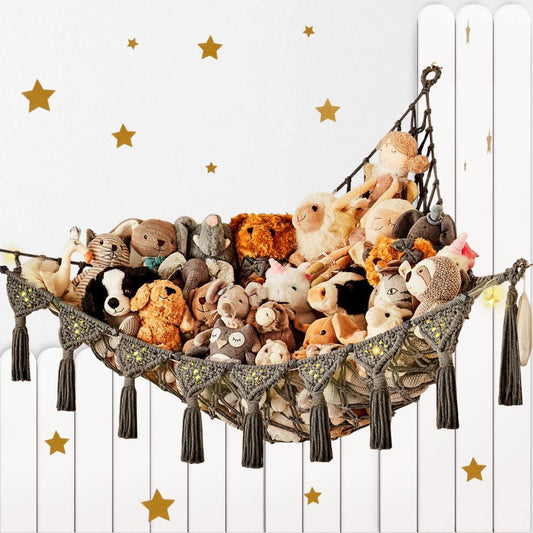
The Emotional Benefits of Plush Toys: How These Cuddly Companions Foster Empathy, Compassion, and Language Skills
Share
In a world that often feels fast-paced and impersonal, there's something timeless and comforting about plush toys. These cuddly companions have been a staple in many households for generations, but their significance goes far beyond mere playthings. From childhood to adulthood, Plush toys, including teddy bears and stuffed animals serve as loyal buddies, offering comfort, support, and a host of emotional benefits. In this blog post, we'll explore how these soft creatures contribute to the development of empathy, compassion, and language skills, enriching our everyday lives in profound ways.
Comfort and Emotional Expression
 Plush toys serve as comforting companions, helping children express and understand their emotions. Children often show their feelings by interacting with their stuffed animals, such as hugging them or talking to them. Plush toys have an innate ability to provide comfort and support during times of distress or uncertainty. For children, a favorite teddy bear or stuffed animal can be a source of solace during bedtime or when facing unfamiliar situations. These soft companions serve as a constant presence, offering a sense of security and reassurance.
Plush toys serve as comforting companions, helping children express and understand their emotions. Children often show their feelings by interacting with their stuffed animals, such as hugging them or talking to them. Plush toys have an innate ability to provide comfort and support during times of distress or uncertainty. For children, a favorite teddy bear or stuffed animal can be a source of solace during bedtime or when facing unfamiliar situations. These soft companions serve as a constant presence, offering a sense of security and reassurance.Reading and Imagination

Stuffed animals make great reading buddies and nurture creativity and imagination. Children often assign roles to their plush toys, which helps develop storytelling abilities and critical thinking.
Manners and Social Skills

Stuffed animals can help children develop manners and social skills by encouraging caregiving behaviour. This can include naming their toys, tucking them in, and treating them with kindness. Plush toys also play a role in nurturing compassion and kindness. When children care for their plush companions, whether by feeding them, tucking them in, or giving them hugs, they learn the importance of nurturing relationships and showing empathy towards others. This extends beyond their interactions with toys and influences how they interact with family members, friends, and even pets.
Language Development

Plush toys can be valuable tools for language development. Through role-playing scenarios with their toys, children practice verbal communication, storytelling, and vocabulary expansion. Whether they're narrating adventures with their plush superheroes or engaging in tea parties with their stuffed animals, children are actively honing their language skills in a fun and creative way.
Adult Benefits

Plush toys are more than just fun—they're vital companions that support emotional and cognitive growth in both children and adults. From providing comfort to nurturing empathy and language skills, these cuddly friends play a significant role in enriching our lives. So, next time you see one, remember its profound impact beyond its soft exterior.




